Physical Address
304 North Cardinal St.
Dorchester Center, MA 02124
Physical Address
304 North Cardinal St.
Dorchester Center, MA 02124
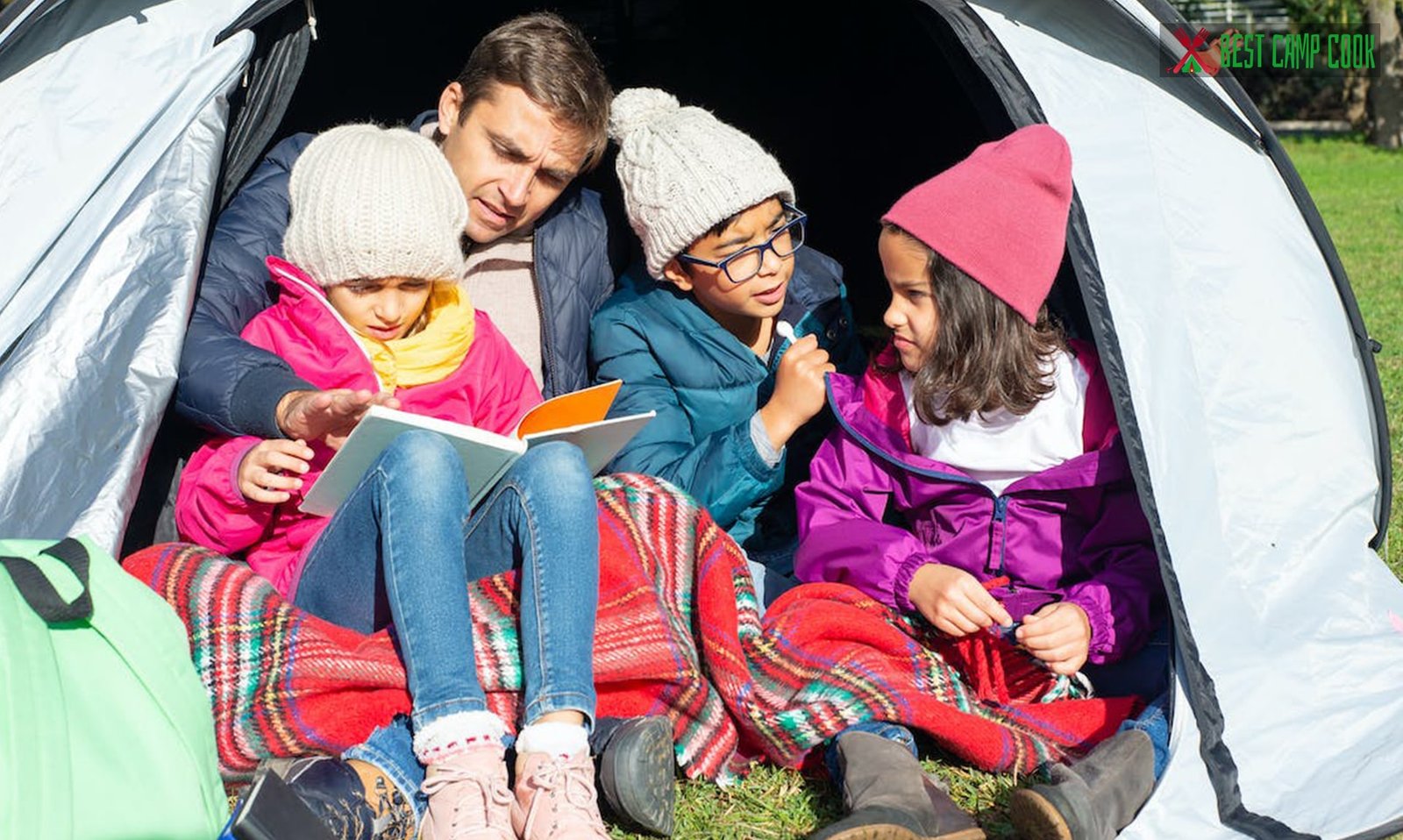
Are you ready to embark on an unforgettable summer adventure? Wondering how to plan a summer camp that will leave kids buzzing with excitement?
Look no further! Whether you’re a parent, educator, or camp organizer, this guide has got you covered. Get ready to dive into a world of endless possibilities, where imagination knows no bounds.
From designing captivating activities to selecting the perfect camp location, we’ll unveil the secrets to creating an unforgettable experience for young adventurers. So, grab your sunscreen, gather your ideas, and let’s embark on a journey of planning a summer camp like no other!
Main Summary: How to Plan a Summer Camp for Kids?
Planning a summer camp for kids involves choosing engaging activities, ensuring safety, and organizing skilled supervision. Foster teamwork, unleash creativity, and create cherished memories for a successful and fun-filled summer camp experience!
Are you ready to embark on the exciting journey of planning a summer camp? Look no further! In this comprehensive guide, we will provide you with all the essential insights and steps to ensure a successful and unforgettable summer camp experience.
From defining your camp’s objectives to creating a captivating program, we’ll help you lay the foundation for a camp that resonates with the interests and learning styles of your campers. We’ll guide you through the logistics, including finding the perfect location, determining the ideal duration, and identifying the target age group.
Recruiting and training competent and enthusiastic staff, prioritizing safety and well-being, and implementing effective marketing strategies are crucial aspects we’ll cover in detail. With our guidance, you’ll be equipped to promote your summer camp effectively, attract enthusiastic participants, and streamline the enrollment process.
So, whether you’re a seasoned camp planner or new to the world of summer camps, this comprehensive guide will empower you with the knowledge and tools you need to plan for staying in a summer camp that leaves a lasting impact on your campers’ lives. Get ready for an exciting adventure filled with fun, growth, and lifelong memories!
Designing a captivating summer camp program is the key to creating an unforgettable experience for your campers. Here, we will explore some exciting ideas to help you brainstorm and structure your camp activities:
Immerse your campers in the wonders of the great outdoors by organizing thrilling outdoor adventures and nature exploration activities. From hiking and camping to nature walks and wildlife spotting, there are endless possibilities to spark curiosity and create lifelong memories.
Unleash the inner artist in your campers by incorporating creative arts and crafts into your program. Set up interactive workshops where campers can explore various art mediums, such as painting, sculpture, and crafts. Encourage their imagination and foster self-expression through engaging projects and hands-on activities.
Sports and team-building activities are excellent ways to promote camaraderie, teamwork, and physical fitness among your campers. Organize friendly competitions, team sports, and cooperative challenges that encourage collaboration and healthy competition. Remember to create an inclusive environment that caters to campers of all skill levels and abilities.
Offer educational workshops and skill development sessions that provide campers with valuable knowledge and practical skills. Invite experts or professionals to conduct sessions on topics like science, technology, sustainability, or personal development. This not only enriches their learning experience but also broadens their horizons.
Finding the right summer camp that aligns with your campers’ interests and values is crucial for a successful experience. Here are some valuable tips to help you navigate the process and make informed decisions:
Start by researching different summer camps in your area or the desired location. Visit their websites, read reviews, and gather as much information as possible. Consider factors such as camp philosophy, activities offered, safety measures, staff qualifications, and camper testimonials.
Clearly define your camp’s objectives and desired outcomes. Determine whether you want to focus on specific skills, personal development, adventure, or a combination of these elements. Having a clear vision will help you narrow down your options and find camps that align with your goals.
Whenever possible, visit the camps you are interested in or attend their open houses. This will give you a chance to see the facilities, meet the staff, and get a feel for the camp’s environment. Observing the camp in action can provide valuable insights into its atmosphere and whether it matches your expectations.
Reach out to friends, family, and community members who have had previous experiences with summer camps. Their recommendations and insights can be invaluable in making an informed decision. Additionally, ask camp organizers for references and contact them to gain a better understanding of their experiences.
Check if the camp you are considering is accredited by reputable organizations. Accreditation ensures that the camp meets certain industry standards and follows best practices. Additionally, inquire about the camp’s safety protocols, staff training, and emergency procedures to ensure the well-being of your campers.
Planning a summer camp requires careful consideration and attention to detail, but with the right guidance and creativity, you can create an exceptional experience for your campers. Use the ideas and tips provided in this comprehensive guide to design an engaging program and find the perfect summer camp that meets your campers’ needs and interests. Happy planning and have a fantastic summer camp!
Every child is unique, with their own personality traits and learning styles. When selecting a summer camp, it is crucial to consider your child’s individuality and find a camp that can accommodate their specific needs and preferences.
Before choosing a summer camp, take the time to understand your child’s personality. Are they outgoing and social, or more introverted and independent? Do they thrive in structured environments or prefer more freedom? By recognizing these traits, you can better tailor the camp experience to suit their individual needs.
In addition to personality, understanding your child’s learning style is equally important. Some children are visual learners who prefer visual aids and demonstrations, while others are kinesthetic learners who learn best through hands-on experiences. There are also auditory learners who grasp information through listening and discussions. By identifying your child’s learning style, you can ensure they have the most effective and engaging learning experience at summer camp.
Once you have a clear understanding of your child’s personality and learning style, you can begin the process of selecting a summer camp that accommodates their unique needs. Consider the following factors when making your decision:
Look for camps that offer a diverse range of activities. This allows your child to explore different interests and find activities that align with their preferences. Whether it’s sports, arts and crafts, science experiments, or outdoor adventures, a camp with a wide variety of activities ensures that every child can find something they enjoy.
If your child thrives in a more independent and flexible environment, consider camps that provide opportunities for self-directed learning and exploration. These camps often offer a range of activities and allow children to choose what interests them most. This freedom allows children to take ownership of their learning and fosters their sense of responsibility.
On the other hand, if your child prefers structure and guidance, look for camps that offer a more organized and structured curriculum. These camps provide a clear schedule and specific learning objectives, which can help children feel more secure and focused. The structured approach can be particularly beneficial for children who thrive in a well-defined learning environment.
Consider camps that prioritize individual attention and small group sizes. This ensures that your child receives personalized support and guidance from camp instructors. Smaller group settings allow for more interaction and engagement, creating a nurturing environment where your child’s unique needs can be addressed.
If your child has a specific interest or passion, consider specialized camps that focus on that area. Whether it’s a soccer camp, art camp, coding camp, or music camp, these specialized programs provide targeted instruction and opportunities for skill development in a specific domain. This focused approach can be highly engaging for children who have a particular interest or talent.

Image Source: Pexels
When choosing a summer camp for your child, it is essential to consider the skills they will gain during their time there. While summer camp is undoubtedly a fun and enjoyable experience, it is also an opportunity for your child to develop valuable skills that will benefit them in various aspects of life.
Summer camps offer a range of activities and programs that contribute to the development of transferable skills. These skills can be applied across different areas and are essential for personal and professional growth. Consider the following skills that your child can realistically gain:
Many summer camps emphasize teamwork and cooperation, providing opportunities for children to improve their communication and collaboration skills. Through group activities, team-building exercises, and shared responsibilities, children learn how to effectively communicate their ideas, listen to others, and work together towards a common goal. These skills are invaluable in both personal relationships and future professional endeavors.
Participating in challenging activities and problem-solving tasks at a summer camp helps children develop their critical thinking skills. They learn how to analyze situations, assess options, and make informed decisions. Camps often present children with opportunities to overcome obstacles and find creative solutions, fostering their problem-solving abilities. These skills will serve them well throughout their academic and professional lives.
Summer camp encourages children to step outside their comfort zones and become more independent. Being away from home and engaging in new experiences helps them build self-reliance and resilience.
They learn to adapt to new environments, manage their time effectively, and navigate unfamiliar situations. Developing independence and resilience at a young age equips children with valuable life skills that will empower them to face challenges with confidence.
Many summer camps provide leadership development opportunities, allowing children to cultivate their leadership skills. Whether through leading a team, organizing activities, or mentoring younger campers, children can enhance their ability to inspire and motivate others.
Camps also foster empathy and compassion as children interact with diverse individuals from different backgrounds. They learn to appreciate and understand others’ perspectives, developing strong interpersonal skills.
Numerous summer camps offer activities that promote physical fitness and outdoor skills. When camping in the summer, it’s essential how much water you should bring to stay hydrated due to the higher temperatures and increased physical activity.
Whether it’s swimming, hiking, sports, or adventure-based activities, children have the opportunity to improve their physical abilities, coordination, and endurance. These activities also cultivate a love for the outdoors and teach children important skills such as teamwork, sportsmanship, and respect for nature.
When selecting a summer camp, carefully review the camp’s program and activities to assess how they align with the skills you want your child to develop. Consider the following factors:
By realistically considering what skills your child will gain during their time at camp, you can choose a program that aligns with your goals and provides a well-rounded experience. Remember that summer camp offers a unique environment for skill development, where children can grow, learn, and create lasting memories.
Running a summer camp involves a multitude of tasks, from registration and scheduling to communication and financial management. To ensure smooth operations and a positive experience for campers and staff, it is crucial to invest in the best summer camp management tools available.
An efficient summer camp management tool simplifies the registration and enrollment process for both parents and camp administrators. It should offer online registration forms, secure payment processing, and the ability to collect essential camper information. By automating these tasks, you can save time, reduce paperwork, and provide a convenient experience for families.
Managing a diverse range of activities and schedules can be challenging without the right tools. Look for a camp management system that allows you to create and customize schedules, assign campers to activities, and manage capacity limits. With a centralized platform, you can easily track attendance, make changes to schedules, and ensure a well-organized camp program.
Clear and consistent communication with parents is vital for a successful summer camp. The right management tools enable you to send important updates, newsletters, and announcements directly to parents via email or mobile notifications.
Additionally, consider a system that offers a parent portal where families can access camper details, view photos, and communicate with camp staff. Strong communication builds trust and keeps parents informed and engaged throughout the camp session.
Managing camp finances efficiently is crucial for the financial sustainability of your summer camp. Seek a management tool that simplifies tasks such as invoicing, payment tracking, and financial reporting. The ability to generate financial statements, track expenses, and analyze revenue streams will help you make informed decisions and maintain a healthy camp budget.
A comprehensive camp management system should also facilitate staff and volunteer management. Look for features that allow you to track staff applications, certifications, and background checks. The system should streamline the process of assigning staff to activities, managing their schedules, and tracking their attendance. Effective staff management ensures that your camp operates smoothly and maintains a safe and enriching environment for campers.
When selecting a summer camp management tool, consider the following factors:
Investing in the best summer camp management tools will streamline your operations, enhance parent satisfaction, and contribute to a successful camp experience for all stakeholders involved.

Image Source: Pexels
Social development plays a crucial role in shaping children and adolescents into well-rounded individuals. It encompasses the skills, attitudes, and behaviors necessary for positive interactions with others and successful integration into society. Summer camps provide a unique environment that fosters social development in young individuals.
At summer camp, children and adolescents have the opportunity to meet and interact with peers from diverse backgrounds. Through shared experiences, teamwork, and collaborative activities, they develop friendships and form social bonds that can last a lifetime. Camps create a supportive and inclusive community where campers learn to appreciate and respect individual differences.
Effective communication and interpersonal skills are vital for building meaningful relationships and navigating social interactions. Summer camps offer an ideal setting for children and adolescents to practice and refine these skills. Whether it’s engaging in group discussions, resolving conflicts, or working together on projects, campers learn to express themselves, listen actively, and understand different perspectives.
Camps often bring together individuals from various cultural, ethnic, and socioeconomic backgrounds. This diversity promotes empathy, cultural understanding, and tolerance among campers. By interacting with others who may have different experiences and perspectives, children develop a broader worldview and learn to embrace diversity. These experiences contribute to the development of compassionate and inclusive individuals.
Summer camps provide a supportive and nurturing environment where children can step outside their comfort zones and take on new challenges. Through accomplishments and positive reinforcement, campers build confidence and self-esteem. The encouragement and guidance from camp staff and the sense of belonging within the camp community contribute to a positive self-image and a belief in one’s abilities.
Many summer camps offer leadership development programs and activities that foster teamwork and cooperation. Campers have the opportunity to take on leadership roles, collaborate with others, and contribute to the camp community. These experiences nurture leadership skills, teach the importance of teamwork, and empower young individuals to become effective leaders in various settings.
Summer camps provide a structured and supportive environment for social development to thrive. Campers engage in activities and experiences that encourage communication, teamwork, empathy, and leadership. The bonds formed and skills developed at camp extend beyond the camp session and positively impact campers’ social interactions in their daily lives.
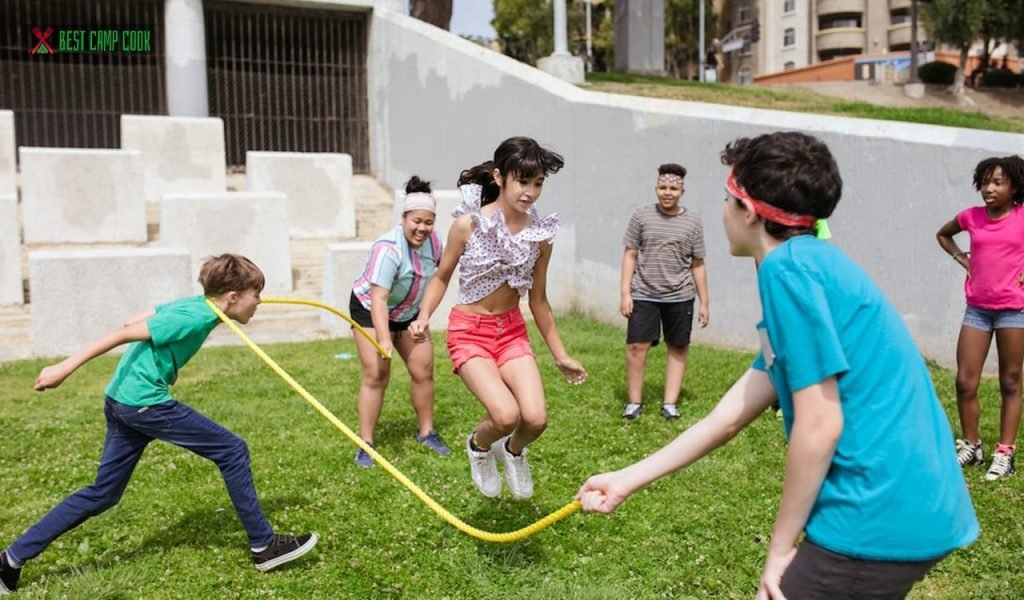
Image Source: Pexels
Running a summer camp is not only about providing a memorable experience for campers but also ensuring the financial sustainability of the program. While profitability may not be the primary goal, it is essential to manage the camp’s finances effectively to cover expenses, invest in quality resources, and provide ongoing improvements.
Conducting a thorough cost analysis is crucial for understanding the financial aspects of operating a summer camp. Identify all expenses, including staff salaries, facility rentals, equipment, supplies, insurance, marketing, and administrative costs. By tracking and categorizing these expenses, you can create a comprehensive budget that accounts for all aspects of camp operations.
To ensure profitability, summer camps need to generate sufficient revenue to cover expenses and generate surplus income. Revenue sources for camps may include camper fees, early bird discounts, sibling discounts, extended care fees, merchandise sales, and fundraising initiatives. It is important to assess the demand for your camp, set competitive pricing, and explore additional revenue streams to maximize profitability.
Effective marketing and enrollment strategies play a crucial role in attracting campers and filling available spots. Develop a marketing plan that highlights the unique features and benefits of your camp, targets specific demographics, and utilize various channels such as social media, websites, and local advertising. Implementing early bird discounts, referral programs, and partnerships with schools or community organizations can also boost enrollment and overall profitability.
Efficient resource management is essential for maintaining profitability in a summer camp. Optimize the use of facilities, equipment, and supplies to minimize waste and unnecessary expenses. Consider partnerships or sponsorships with local businesses or organizations that can provide resources or services at discounted rates. By maximizing the value of your resources, you can reduce costs and increase profitability.
Regularly evaluate the financial performance of your summer camp and make necessary adjustments to improve profitability. Monitor key financial metrics, such as revenue, expenses, and profit margins, and compare them to industry benchmarks. Identify areas where costs can be reduced, revenue can be increased, or operational efficiencies can be achieved.
Adapting your strategies based on data-driven insights will help maintain a financially viable camp. While profitability is important, it should be balanced with the camp’s mission and the quality of the camper experience. By implementing sound financial practices, effective marketing strategies, and cost-efficient operations, summer camps can achieve long-term profitability while providing enriching and memorable experiences for campers.
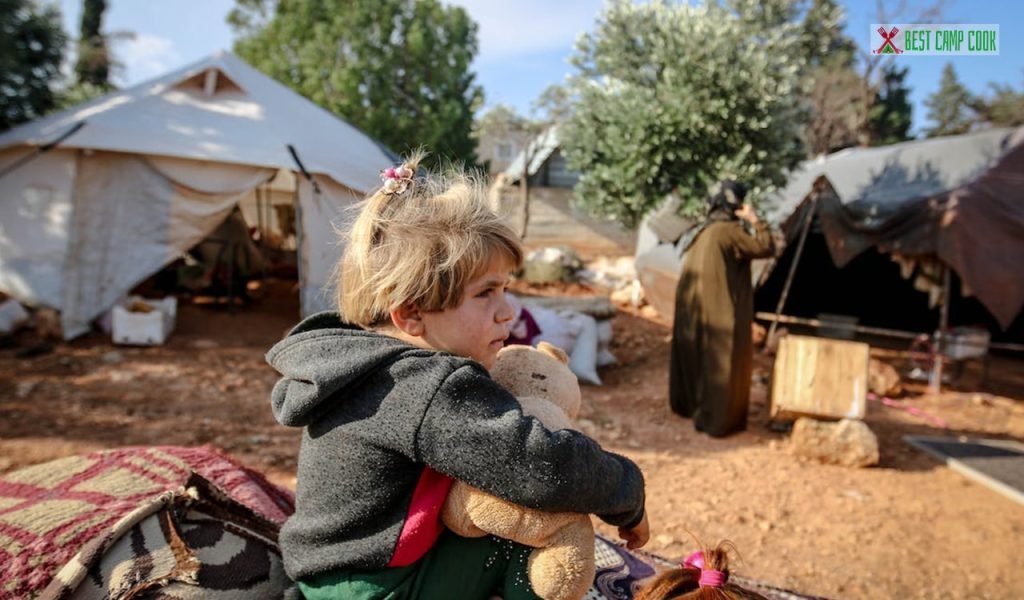
Image Source: Pexels
Ensuring the well-being and safety of campers is of paramount importance for any summer camp program. Parents entrust their children’s care to the camp, and it is crucial to establish a safe and secure environment that promotes physical and emotional well-being. Here are some key considerations for guaranteeing the well-being and safety of campers:
Develop and implement comprehensive safety policies and procedures that cover all aspects of camp operations. This includes protocols for emergencies, medical situations, transportation, supervision, water activities, and more. Regularly review and update these policies to align with industry standards and best practices. Communicate these policies to staff, campers, and parents, and ensure everyone understands their roles and responsibilities.
Invest in thorough staff training programs to equip your team with the necessary skills and knowledge to handle various situations. Provide training on first aid, CPR, emergency response, child protection, behavior management, and any specific activities or equipment used at the camp. Conduct background checks and ensure staff members meet the required qualifications for their roles.
Collect detailed medical information and emergency contact details for each camper. Ensure there are trained medical personnel or a nurse on-site to address health-related concerns, administer medication, and respond to emergencies. Follow proper hygiene practices, provide nutritious meals, and accommodate dietary restrictions and allergies. Regularly sanitize facilities and equipment to maintain a clean and healthy environment.
Conduct thorough risk assessments of the campsite and activities to identify potential hazards. Mitigate risks by implementing safety measures, such as proper signage, equipment maintenance, staff supervision, and appropriate participant-to-staff ratios. Regularly inspect facilities, play areas, and water bodies to ensure they meet safety standards and address any potential risks promptly.
Maintain open and transparent communication channels with parents throughout the camp session. Provide clear instructions regarding drop-off and pick-up procedures, daily schedules, and any updates or changes to the program. Address any concerns or questions promptly and keep parents informed about their child’s well-being and camp experiences.
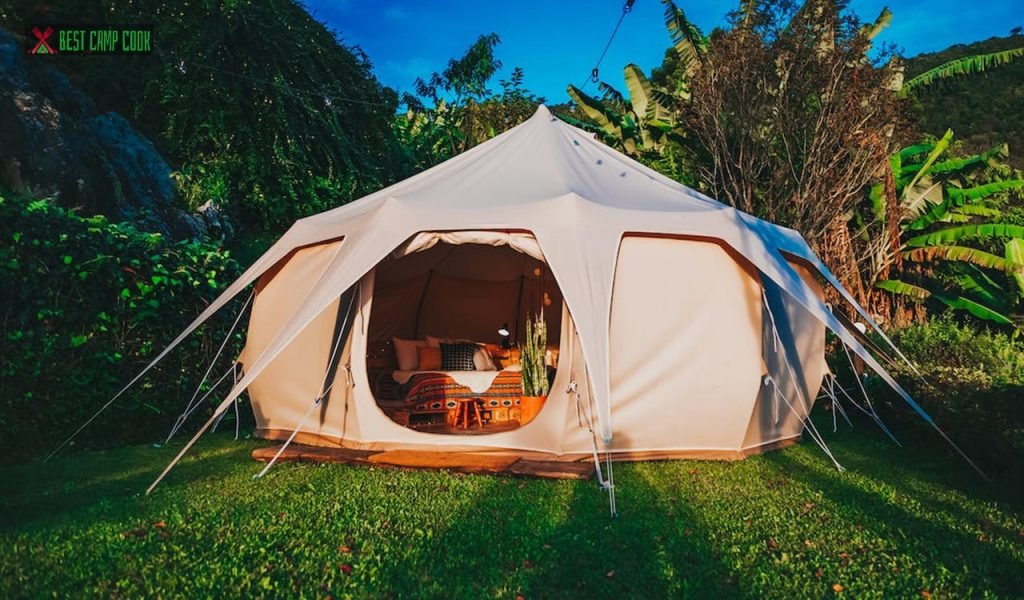
Image Source: Pexels
Effective communication is vital for a successful summer camp program. Clear and open lines of communication not only ensure the smooth operation of the camp but also foster trust and engagement among campers, staff, and parents. Here are some strategies to facilitate effective communication during camp:
Encourage a supportive and approachable atmosphere where campers feel comfortable expressing themselves. Train staff members to actively listen, engage in meaningful conversations, and provide constructive feedback. Regularly check in with campers to address their concerns, celebrate achievements, and offer guidance. Foster positive relationships between campers and staff to create a sense of belonging and trust.
Maintain regular communication with parents to keep them informed about their child’s experiences and progress. Send out newsletters, emails, or updates through a dedicated parent portal to share camp highlights, upcoming events, and important information. Provide avenues for parents to reach out with questions or concerns and respond in a timely and empathetic manner.
Conduct regular staff meetings and training sessions to ensure consistent communication among the camp team. Use these opportunities to discuss updates, share important information, address challenges, and brainstorm ideas. Encourage open dialogue, active participation, and collaboration among staff members to create a cohesive and supportive team environment.
Utilize technology and communication tools to streamline communication processes. This can include dedicated camp management software or apps that allow for real-time updates, messaging features, and photo sharing. However, ensure that technology use aligns with camp policies and does not hinder face-to-face interactions or outdoor experiences.
Establish clear protocols for emergency communication. Ensure that all staff members are aware of these protocols and know how to initiate emergency procedures. Maintain reliable communication channels, such as two-way radios, cell phones, or other communication devices, to quickly communicate with emergency services, parents, and staff members in case of any critical situations.
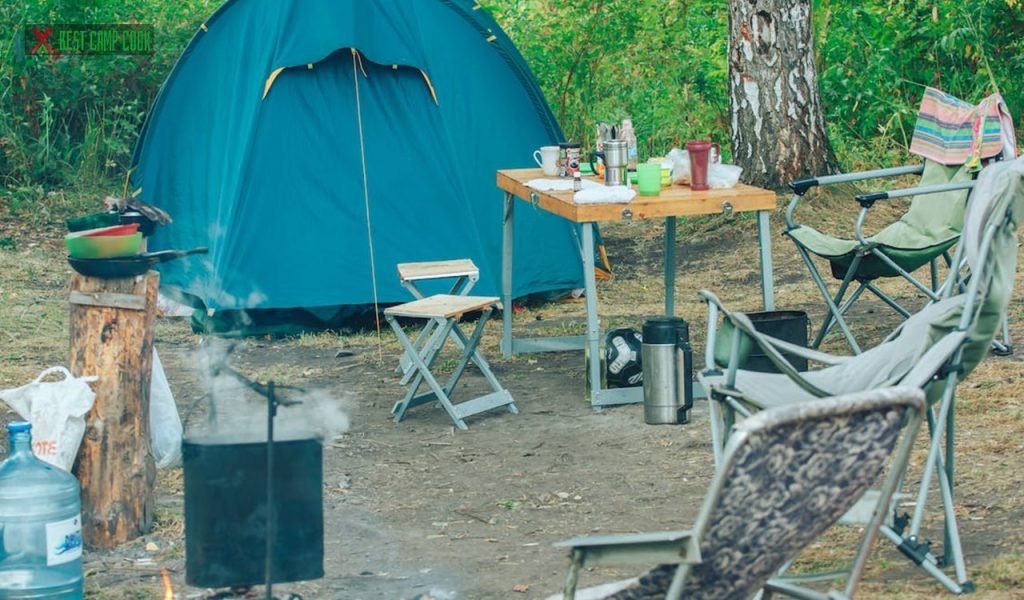
Image Source: Pexels
Planning a summer camp program that leaves a lasting impression on campers requires careful thought and consideration. To make the program memorable and engaging, incorporate a variety of activities, foster meaningful connections, and provide opportunities for personal growth and discovery. Here are some key aspects to consider when planning your summer camp program:
Include a diverse range of activities that cater to different interests and skill levels. Offer options such as outdoor adventures, arts and crafts, sports, team-building exercises, educational workshops, and themed events. Balance structured activities with free time for campers to explore their own interests and foster creativity.
Choose a captivating theme for your summer camp program to create excitement and a sense of unity among campers. Organize special events and themed days related to the chosen theme. This could include costume contests, talent shows, campfire storytelling, scavenger hunts, or outdoor movie nights. Engage campers in the planning and preparation of these events to enhance their involvement and enthusiasm.
Design activities that promote the development of various skills, such as leadership, teamwork, problem-solving, communication, and creativity. Provide opportunities for campers to set goals, learn new skills, and challenge themselves in a supportive environment. Recognize and celebrate their achievements to boost confidence and motivation.
Encourage meaningful connections between campers and counselors. Assign counselors to specific groups of campers to foster personal bonds and provide individualized attention. Train counselors to be positive role models, mentors, and empathetic listeners. Create opportunities for campers to share their thoughts, ideas, and experiences with their counselors through group discussions or one-on-one interactions.
Incorporate activities that encourage self-reflection and goal-setting. Provide campers with opportunities to reflect on their camp experiences, express gratitude, and set personal goals for the future. This could be done through journaling, group discussions, or guided reflection sessions. Help campers identify their strengths, areas for growth, and aspirations.
Organize a final showcase or celebration where campers can showcase their accomplishments and talents. This could be a performance, exhibition, or presentation where campers demonstrate the skills they have acquired during their time at camp.
Invite parents and families to join the celebration to create a sense of pride and recognition for campers’ achievements. By considering these factors and tailoring your summer camp program to meet the needs and interests of your campers, you can create a memorable and impactful experience that will leave a lasting impression on them for years to come.
Setting the right price for your summer camp is essential to ensure financial sustainability while providing a valuable experience for campers. Consider the following factors when determining the price for your camp:
Conduct a thorough cost analysis to determine all the expenses associated with running the camp. This includes staffing, facility rental, equipment, supplies, meals, transportation, marketing, insurance, and administrative costs. Calculate the total cost per camper, taking into account the duration of the camp and any additional services or activities provided.
Research the market and analyze the pricing of similar summer camps in your area. Consider factors such as camp duration, amenities, reputation, program offerings, and target audience. Compare your camp’s unique selling points and value proposition to others in the market to assess your competitive position.
Define the value that your camp offers to campers and their families. Highlight the unique features, quality of programming, experienced staff, specialized facilities, or any other factors that set your camp apart. Emphasize the benefits and outcomes that campers can expect from attending your camp, such as skill development, personal growth, and memorable experiences.
Determine your financial goals and objectives for the camp. Consider factors such as desired profit margins, sustainability, reinvestment in facilities and programs, and financial aid opportunities. Balancing financial goals with affordability for families is crucial to ensure accessibility and inclusivity.
Consider implementing tiered pricing options based on different factors such as early registration, multiple siblings attending, or financial need. This allows you to accommodate a wider range of families while still maintaining revenue goals. Offering discounts for early bird registration or referral programs can also incentivize families to register early and spread the word about your camp.
Provide flexible payment options to ease the financial burden on families. Consider offering installment plans, scholarship or financial aid opportunities, or accepting different payment methods. Communicate these options clearly on your camp website or registration materials to ensure families are aware of the available choices.
Be transparent about the pricing structure and what is included in the camp fees. Clearly outline any additional costs or optional extras that families may incur. Avoid hidden fees or unexpected expenses that can lead to dissatisfaction or negative feedback.
Provide a breakdown of costs and communicate the value that families will receive for their investment. By carefully considering these factors and conducting thorough research, you can set a price for your camp that is competitive, fair, and aligned with the value you provide to campers and their families.
Efficient and well-managed camp registration processes are crucial for a successful summer camp. Streamlining registration procedures, ensuring accessibility, and providing clear communication can enhance the camper experience and contribute to the overall success of your camp. Consider the following tips to be smart about camp registration:
Implement an online registration system to simplify the registration process. This allows families to register conveniently from their homes, provides real-time data management, and reduces paperwork. Choose a user-friendly platform that allows for easy customization of registration forms, secure payment processing, and integration with your camp management software.
Encourage early registration by offering incentives such as discounted rates, priority enrollment, or exclusive perks. Set clear deadlines for registration to create a sense of urgency and ensure accurate planning for camp capacity, staffing, and logistics. Communicate these deadlines through multiple channels, including your camp website, social media platforms, email newsletters, and direct communication with previous campers and their families.
Provide clear instructions and requirements for registration. Clearly communicate the necessary information and documentation that families need to provide, such as medical forms, emergency contacts, dietary restrictions, and special considerations. Make the registration requirements easily accessible on your website and provide support or guidance for families who may need assistance.
Establish a system for responsive communication with families during the registration process. Promptly address inquiries, concerns, and requests for information to build trust and confidence. Use multiple channels of communication, such as email, phone, and social media, to ensure accessibility and provide timely updates.
Develop a strategy for managing waitlists if your camp reaches full capacity. Implement a fair and transparent waitlist process that provides updates and communicates the likelihood of securing a spot. Consider offering alternative program options or referring families to other camps if your capacity cannot accommodate all interested campers.
Ensure that your camp registration system complies with data protection regulations and prioritize the privacy and security of camper information. Clearly communicate your data management practices and privacy policy to families, assuring them that their personal information will be handled with care and only used for camp-related purposes.
By implementing efficient registration processes, providing clear communication, and prioritizing the needs of families, you can streamline the registration experience and create a positive first impression for campers and their parents.
The selection, management, and evaluation of summer camp staff are vital to ensure a safe, engaging, and well-run camp experience. Finding qualified and dedicated staff members, providing effective management and support, and evaluating their performance can contribute to the overall success of your camp. Consider the following aspects when it comes to staff selection, management, and evaluation:
Develop a comprehensive recruitment strategy to attract qualified and enthusiastic staff members. Advertise job openings through various channels, such as online job boards, educational institutions, professional networks, and social media platforms. Clearly outline the qualifications, experience, and expectations for staff positions to attract candidates who align with your camp’s values and objectives.
Implement an application and screening process to assess the suitability of potential staff members. Require applicants to submit resumes, cover letters, and references that highlight their relevant experience, skills, and personal qualities. Conduct thorough background checks, including criminal record checks and reference verification, to ensure the safety and well-being of campers.
Conduct interviews to assess the candidates’ suitability, interpersonal skills, and alignment with your camp’s mission and values. Include a mix of behavioral and situational questions to evaluate their problem-solving abilities, conflict-resolution skills, and ability to work in a team. Consider involving current staff members or experienced professionals in the interview process to gain different perspectives.
Provide comprehensive training and professional development opportunities for staff members. Ensure that they are equipped with the necessary skills, knowledge, and resources to fulfill their roles effectively. Conduct orientation sessions to familiarize staff with camp policies, procedures, emergency protocols, and child protection guidelines. Offer ongoing training throughout the camp season to address specific areas of growth or skill enhancement.
Establish open lines of communication between staff members and camp leadership. Foster a supportive and inclusive work environment where staff feel comfortable sharing concerns, ideas, and feedback. Conduct regular check-ins, team meetings, and one-on-one supervision sessions to address any issues, provide guidance, and recognize staff achievements.
Implement a performance evaluation process to assess staff members’ performance and provide constructive feedback. Set clear expectations and performance criteria, aligning them with your camp’s goals and values. Conduct regular evaluations throughout the camp season, providing opportunities for staff to reflect on their performance, identify areas for improvement, and receive recognition for their contributions.
Recognize and appreciate the efforts and dedication of your camp staff. Celebrate their achievements, milestones, and contributions through verbal recognition, staff awards, or appreciation events.
Demonstrating appreciation boosts morale, encourages retention, and fosters a positive camp culture. By implementing a comprehensive staff selection process, providing effective management and support, and conducting regular performance evaluations, you can ensure that your camp staff are capable, motivated, and committed to providing a safe and enriching experience for campers.
Compliance with laws and regulations is essential for operating a summer camp. Understanding and adhering to legal requirements ensures the safety, well-being, and legal protection of campers, staff members, and your organization. Consider the following key areas of laws and regulations that may apply to your camp:
Familiarize yourself with health and safety regulations specific to summer camps. These may include requirements for facility safety inspections, emergency response protocols, staff-to-camper ratios, health screenings, first aid and CPR certifications, food handling and allergen management, medication administration, and immunization records. Develop and implement policies and procedures to ensure compliance with these regulations and prioritize the well-being of campers.
Understand and comply with employment laws and regulations governing staff members’ rights, responsibilities, and working conditions. These may include minimum wage requirements, overtime regulations, working hour restrictions for minors, employment contracts, background checks, and child protection policies. Consult legal professionals or human resources experts to ensure compliance with these laws and provide a safe and fair working environment for staff.
Ensure compliance with privacy and data protection laws, especially when collecting and storing personal information of campers and staff members. Understand the applicable regulations regarding data collection, storage, sharing, and consent. Develop and communicate a privacy policy that outlines how personal information will be handled and protected, and obtain appropriate consent from parents or legal guardians.
Consider laws and regulations related to accessibility and inclusion to ensure equal opportunities for all campers. Familiarize yourself with disability rights legislation, accommodation requirements, and accessibility standards. Implement measures to provide reasonable accommodations for campers with disabilities, promote inclusive practices, and address any barriers to participation.
Obtain appropriate insurance coverage to protect your organization, staff members, and campers from potential liabilities and risks. Consult with insurance professionals to understand the specific types of insurance required for your camp, such as general liability insurance, property insurance, workers’ compensation insurance, and accident and medical coverage.
Respect copyright and intellectual property laws when using materials, images, or intellectual property owned by others. Seek permission or appropriate licenses for the use of copyrighted materials, such as songs, videos, or published works. Educate staff members about copyright laws and ensure they adhere to ethical standards when creating or sharing camp-related content.
It is essential to consult legal professionals or experts specializing in camp regulations to ensure full compliance with applicable laws and regulations. Regularly review and update your camp policies and procedures to align with any changes in the legal landscape and continue providing a safe and legally compliant camp environment.
A summer camp is a recreational program for children, teenagers, or even adults, usually held during school vacations. It offers various activities like sports, arts, crafts, and outdoor adventures. Participants get a chance to socialize, learn new skills, and experience nature.
Summer camping allows people to enjoy the warm weather and longer days, making outdoor activities more pleasant. It’s an opportunity to escape the routines, connect with nature, and create lasting memories with friends and family.
When preparing for summer camp, pack essential items like clothes, sunscreen, insect repellent, sleeping bags, and personal hygiene products. Don’t forget to bring any required medications and a first-aid kit.
To create a camp plan, determine the duration, location, and activities you want to include. Organize a schedule, allocate time for each activity, and ensure a balance between fun, education, and relaxation.
Summer camps cater to various age groups, from young children to teens and even adults. Different camps specialize in different age ranges and interests, so choose one that aligns with the participant’s age and preferences.
Staying organized at summer camp involves using packing lists, keeping personal items tidy, and following the camp schedule. Engage with fellow campers, communicate effectively, and participate in group activities to foster a sense of camaraderie and teamwork.